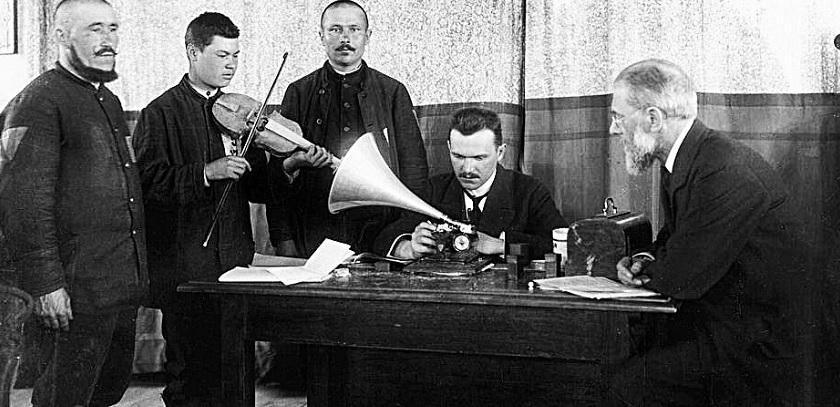
A book looking into the earliest-known phonograph recordings of folk music in what were once Ottoman lands is out now for Turkish language readers.
The book, “Fonograf Alanda: Erken Dönem Karşılaştırmalı Müzikoloji Çalışmaları ve Türkiye” (Phonograph in the Field: Early Studies in Comparative Musicology and Turkey), chronicles the work and experiences of linguist Hubert Octave Pernot and anthropologist Felix von Luschan, who crisscrossed and recorded in the region in the early 20th-century.
Published by the Istanbul-based Berceste Publishing House, it covers Pernot’s recordings of Greek folk music on the island of Chios, then part of the Ottoman Empire, in the closing years of the 19th century. It also examines Luschan’s recording of Turkish and Kurdish folk songs from a 12-year-old Armenian boy named Avedis during his time in Zincirli, in today’s Gaziantep, for archaeological works in 1902.
The study is a unique and rare documentation of Pernot and Luschan’s recordings, which have so far remained understudied.
 These recordings have long remained secluded and little detailed research has been conducted on them as they are scattered in archives across the world, while phonograph wax cylinders used in their recording have been worn out over time. What little research has been conducted on them so far is in German, French, Greek and Ottoman.
These recordings have long remained secluded and little detailed research has been conducted on them as they are scattered in archives across the world, while phonograph wax cylinders used in their recording have been worn out over time. What little research has been conducted on them so far is in German, French, Greek and Ottoman.
The importance and prominence of Pernot and Luschan’s work in comparative musicology studies has not been studied significantly to this day. However, “Phonograph in the Field,” produced by a team of musicologists, aims to fill an academic void and draw attention to cooperation between scientists and composers in bringing these recordings to light.
The research also goes beyond the early music recordings, showing how prominent musicologists and composers like Otto Abraham, Erich Moritz von Hornbostel, Gomidas Vartabed, Paul Le Flem, Maurice Ravel and Michel Calvocoressi influenced each other, as well as how the era’s scientific innovations overlapped with arts production.
The book hopes to stimulate further work on recordings in archives elsewhere that still awaits study by musicologists.
The book was prepared under the editorial baton of Mimar Sinan Fine Arts University (MSGSÜ) Istanbul State Conservatory’s Elif Damla Yavuz, Nihan Tahtaişleyen and Erdener Önder. It also consists of articles written by Divin Gençoğlan, İdil Özcan and Ela Alpman, all from the university’s musicology department.
The book is in Turkish but will be of interest to all students of musicology in the early 20th century in the former Ottoman Empire and its region.